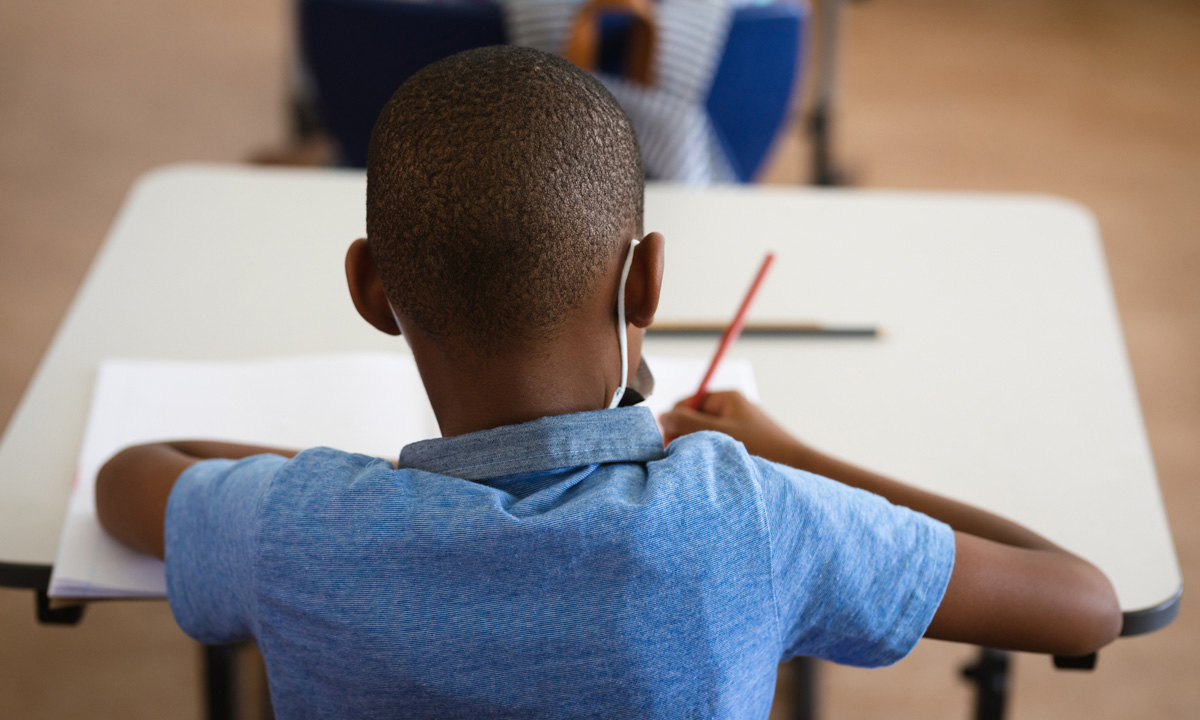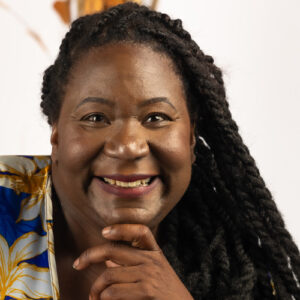Education a Civil Rights Issue for Black Students with Disabilities & Families
Filing a federal complaint, as my organization did, is not enough. Black parents must come together to hold school & government officials to account.

Get stories like this delivered straight to your inbox. Sign up for The 74 Newsletter
Many social justice advocates have noticed the rapid passage of state laws targeting Black history and related book bans. Fewer have seen another civil rights battle, one that, as an advocate, I witness every day: the uphill fight being fought by Black students with disabilities and their families.
The failure of many districts to educate students with disabilities, and particularly Black students, is an issue I have seen play out for 20 years. Despite protections under the Individuals With Disabilities Education Act and Section 504 of the Rehabilitation Act of 1973, students with disabilities have higher rates of lost instruction than their white counterparts, due largely to being disciplined unfairly compared with other students. A quarter of Black students with disabilities were suspended in 2017-18, compared with 11% of similar white students. The risk of Black middle and high school students with disabilities getting suspended is over 40% and higher than for their non-Black peers. Black students with disabilities are also more likely to be referred to law enforcement than other student groups.
It’s been 69 years since Brown v. Board outlawed school segregation and nearly 60 since additional federal protections were implemented to ensure educational rights for Black children and children with disabilities. Yet, to be a Black child with disabilities in the United States is to face a level of discrimination many would think was a thing of the past.
While the disparities are unjust, behind-the-scenes systemic issues such as a lack of understanding of the needs of the Black and disabled communities, lack of capacity to investigate complaints promptly and bureaucratic negligence in not following investigative policies create obstacles to intervening in ongoing racial discrimination. For example, in Virginia, where I live, the Department of Education has failed to correct ongoing injustices by stalling response times and ignoring deadlines, and failing to inform parents of needed information. The pervasive nature of discrimination against Black students with disabilities in Virginia has been widely known to the state legislature and Department of Education, and yet has remained uncorrected.
The historical lens of Black children being labeled as disabled or different from the expected relates to slavery, Jim Crow and racist violence, and the false premise that they can’t learn is embedded in the public education system. For meaningful change to happen, the Black community must demand more, file complaints and speak up at school board meetings and to state boards of education.
Federal civil rights enforcement is one tool to protect the rights of Black children with disabilities. The U.S. Department of Education has agreed to open a systemic complaint against the Virginia Department of Education, and on June 6, the Office for Civil Rights launched an investigation into a complaint of discrimination filed by my organization, Advocating 4 Kids. The complaint represents students and families from across the state. This investigation is important, as it can potentially rectify some of the civil rights abuses against students with disabilities.
All too often, states and districts are not held accountable for denying students with disabilities the education they deserve. If state superintendents know they will not be held accountable by the U.S. Department of Education, a permissive culture continues down to the lowest levels, giving districts and educators leave to openly abuse students and ignore their civil rights.
What few may realize, though, is that even a federal investigation is not enough. The Office for Civil Rights lacks the capacity to rigorously enforce civil rights protections. Systemic change is required: new leadership at state and district levels, better enforcement procedures, transparency and oversight, and in the case of Virginia, a call for the General Assembly to ensure funds are allocated to provide historically underrepresented groups and communities with resources and training specific to their needs.
The only way trust can be rebuilt in civil rights protections is for governors, elected officials, state departments of education, and local and state board members to hold those violating the rights of students accountable for their actions. This must include training on wrongdoing, development of corrective plans with oversight, data collection on the types of violations that are being reported and withholding of funding. There needs to be a robust push for community engagement within Black and minority communities so parents can understand their rights and the rights of their children, and what to do when they believe a violation has occurred.
Lastly, Black parents, advocates and activists must come together to address the root of the problem: Black voices have been excluded from developing special education policies, structures and regulations.
Public education in the United States was built upon a white supremacist system that still does not value education for Black students, or those with disabilities. As long as these children and their experiences are overlooked, they will continue to be overrepresented in out-of-school suspension and court referrals.
Advocating 4 Kids, Inc is doing our part and is hosting our first Black Collective Network Advocacy Conference, titled “Uplifting Black Families in the Disability Community.”
The national conference will be held virtually Aug. 11 to 13. We aim to provide Black families, advocates and community members with the training to exercise their rights and seek better special education outcomes. Few parents and students understand these rights and how to begin the complaint process when they are violated, and fear of retaliation or feelings of futility can discourage many from trying. However, by coming together and sharing resources, parents can learn to prevent bias and racist disciplinary exclusion practices and policies.
The Black and disabled communities must stand in their power and demand that our voices are heard.
Disclosure: Andy Rotherham is a member of the Virginia Board of Education and a member of The 74’s Board of Directors.
Get stories like these delivered straight to your inbox. Sign up for The 74 Newsletter

;)
